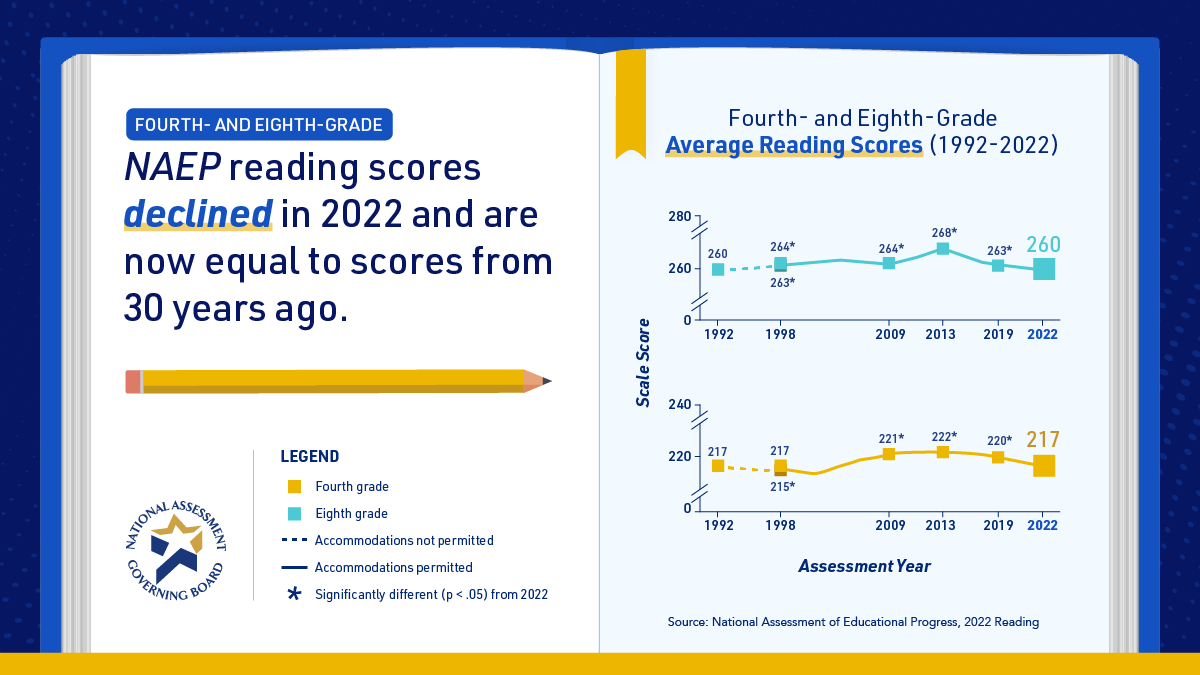69% of US 4th Graders Not Proficient in Reading Amidst Debate on Teacher Prep Curriculum

Recent data from the National Assessment of Educational Progress (NAEP) reveals that a significant majority of fourth-grade students in the United States, approximately 69%, are not reading at a proficient level. This statistic highlights ongoing concerns about foundational literacy skills in the nation's education system, with average reading scores for both fourth and eighth graders declining in 2024 compared to previous years. The figures have prompted renewed discussions about educational priorities and the effectiveness of current pedagogical approaches.
Amidst these findings, a tweet by Rhyen Staley on October 19, 2025, sparked debate by stating, "70% of students across the country can’t read at proficient levels, but apparently the real concern is the need to inject more queer theory into teacher prep programs." Staley's comment draws a sharp contrast between the perceived urgency of addressing reading proficiency and the focus on incorporating LGBTQ+ inclusive curricula in teacher education. The 70% figure cited by Staley aligns closely with NAEP's 2024 report, which indicates that 31% of fourth graders and 30% of eighth graders performed at or above the proficient level, meaning approximately 69-70% fall below this benchmark.
The concept of "queer theory" in education generally refers to academic frameworks that explore gender and sexual identity, often advocating for inclusive practices and curricula. Discussions around its integration into teacher preparation programs have gained traction in some educational circles, aiming to equip future educators with the tools to create more inclusive classroom environments for LGBTQ+ students. Proponents argue that such training is essential for fostering a supportive and equitable learning atmosphere for all students.
However, critics, like Staley, contend that focusing on such theoretical frameworks diverts attention and resources from fundamental academic challenges, particularly in core subjects like reading. The NAEP "proficient" level, defined as demonstrating "solid academic performance and competency over challenging subject matter," is a high standard, and the consistent decline in scores underscores a pressing need for effective literacy interventions. This ongoing tension between foundational skill development and broader social and cultural education continues to be a central point of contention in educational policy and public discourse.